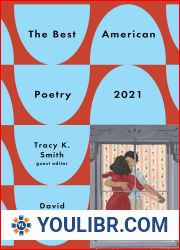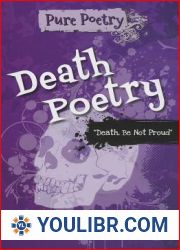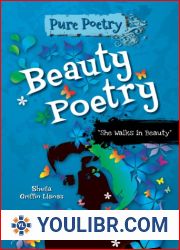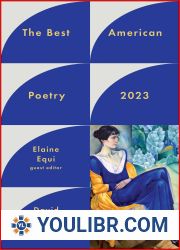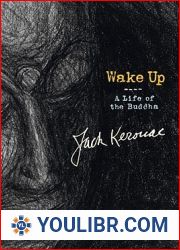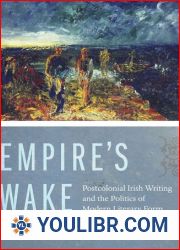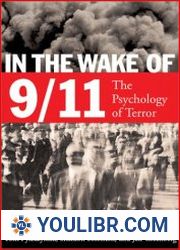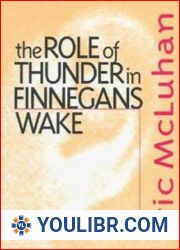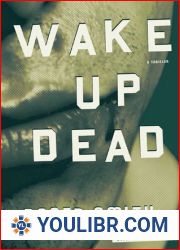
BOOKS - Political Poetry in the Wake of the Second Spanish Republic: Rafael Alberti, ...

Political Poetry in the Wake of the Second Spanish Republic: Rafael Alberti, Pablo Neruda, and Nicolas Guillen
Author: Grant D. Moss
Year: December 6, 2017
Format: PDF
File size: PDF 1.9 MB
Language: English

Year: December 6, 2017
Format: PDF
File size: PDF 1.9 MB
Language: English

Political Poetry in the Wake of the Second Spanish Republic: Rafael Alberti, Pablo Neruda, and Nicolas Guillen The book "Political Poetry in the Wake of the Second Spanish Republic" delves into the intersection of politics and poetry in the works of three prominent Spanish-language poets - Rafael Alberti, Pablo Neruda, and Nicolas Guillen - who sought to reconcile their artistic pursuits with their political beliefs during the tumultuous period of the Second Spanish Republic (1931-1939) and its aftermath. The authors of this book explore how these poets navigated the challenges of committing to both their political ideologies and their creative projects without sacrificing either aspect of their lives. During the Second Spanish Republic, Alberti, Guillen, and Neruda were deeply influenced by the political upheavals of their time. They denounced the injustices committed by the opposing Francoist forces against the Republic, and their poetry reflects their commitment to the cause. However, after the fall of the Republic in 1939, they continued to weave their political beliefs into their work, but in a more subtle manner, allowing them to maintain their positions within the poetic canon while still upholding their political convictions as card-carrying Communists.
Политическая поэзия на волне Второй Испанской Республики: Рафаэль Альберти, Пабло Неруда и Николас Гильен «Политическая поэзия по следам Второй Испанской Республики» углубляется в пересечение политики и поэзии в произведениях трёх выдающихся испаноязычных поэтов - Рафаэля Альберти, Пабло Неруды и Николаса Гильена - которые стремились примирить свои художественные занятия со своими политическими убеждениями во время бурного периода Второй Испанской Республики (1931 - 1939) и его последствий. Авторы этой книги исследуют, как эти поэты справлялись с проблемами приверженности как своей политической идеологии, так и своим творческим проектам, не жертвуя ни одним из аспектов своей жизни. Во время Второй Испанской республики Альберти, Гильен и Неруда находились под глубоким влиянием политических потрясений своего времени. Они осудили несправедливость, совершаемую противостоящими франкистскими силами против Республики, и их поэзия отражает их приверженность делу. Тем не менее, после падения Республики в 1939 году они продолжали вплетать свои политические убеждения в свою работу, но в более тонкой манере, позволяя им сохранять свои позиции в рамках поэтического канона, по-прежнему отстаивая свои политические убеждения в качестве коммунистов, несущих карты.
Poésie politique dans le sillage de la Deuxième République espagnole : Rafael Alberti, Pablo Neruda et Nicholas Guillén « Poésie politique sur les traces de la Deuxième République espagnole » approfondit le croisement de la politique et de la poésie dans les œuvres de trois éminents poètes hispaniques - Rafael Alberti, Pablo Neruda et Nicholas Guillén - qui ont cherché à réconcilier leurs études artistiques avec leurs convictions politiques pendant la période agitée de la Seconde République espagnole (1931-1939) et ses conséquences. s auteurs de ce livre explorent comment ces poètes ont géré les problèmes d'engagement à la fois de leur idéologie politique et de leurs projets créatifs sans sacrifier aucun aspect de leur vie. Au cours de la Deuxième République espagnole, Alberti, Guillen et Neruda ont été profondément influencés par les troubles politiques de leur époque. Ils ont condamné l'injustice commise par les forces franquistes opposées à la République et leur poésie reflète leur engagement. Néanmoins, après la chute de la République en 1939, ils ont continué à intégrer leurs convictions politiques dans leur travail, mais d'une manière plus subtile, leur permettant de maintenir leurs positions au sein du canon poétique tout en défendant encore leurs convictions politiques en tant que communistes porteurs de cartes.
Poesía política a raíz de la II República Española: Rafael Alberti, Pablo Neruda y Nicolás Guillén «Poesía política a raíz de la II República Española» profundiza en el cruce de la política y la poesía en las obras de tres destacados poetas hispanohablantes - Rafael Alberti, Pablo Neruda y Nicolás Guillén - que buscaron conciliar sus estudios artísticos con sus convicciones políticas durante el turbulento periodo de la Segunda República Española (1931-1939) y sus consecuencias. autores de este libro investigan cómo estos poetas manejaron los problemas de compromiso tanto con su ideología política como con sus proyectos creativos, sin sacrificar ninguno de los aspectos de su vida. Durante la Segunda República Española, Alberti, Guillén y Neruda estuvieron profundamente influenciados por la agitación política de su época. Denunciaron las injusticias cometidas por las fuerzas franquistas enfrentadas contra la República y su poesía refleja su compromiso con la causa. n embargo, después de la caída de la República en 1939, continuaron tejiendo sus convicciones políticas en su trabajo, pero de una manera más sutil, lo que les permitió mantener sus posiciones dentro del canon poético, aún defendiendo sus convicciones políticas como comunistas portadores de mapas.
Poesia politica sull'onda della Seconda Repubblica spagnola: Rafael Alberti, Pablo Neruda e Nicholas Giglie'La poesia politica sulla scia della Seconda Repubblica Spagnola 'approfondisce l'intersezione tra politica e poesia nelle opere di tre grandi poeti di lingua spagnola - Rafael Alberti, Pablo Neruda e Nicholas Guillain - che hanno cercato di conciliare le loro attività artistiche con le loro convinzioni politiche durante il periodo turbolento della Seconda Repubblica Spagnola (1931-1939) e le sue conseguenze. Gli autori di questo libro studiano come questi poeti abbiano affrontato i problemi dell'impegno sia per la loro ideologia politica che per i loro progetti creativi, senza sacrificare alcun aspetto della loro vita. Durante la Seconda Repubblica Spagnola, Alberti, Guillain e Neruda furono profondamente influenzati dalle turbolenze politiche del loro tempo. Essi hanno denunciato le ingiustizie commesse dalle forze franchiste contrarie alla Repubblica e la loro poesia riflette il loro impegno. Tuttavia, dopo la caduta della Repubblica nel 1939, essi continuarono a incanalare le loro convinzioni politiche nel loro lavoro, ma in modo più delicato, permettendo loro di mantenere la loro posizione nell'ambito del canone poetico, sostenendo ancora le loro convinzioni politiche come comunisti portatori di carte.
Politische Poesie im Gefolge der Zweiten Spanischen Republik: Rafael Alberti, Pablo Neruda und Nicolás Guillén „Politische Poesie auf den Spuren der Zweiten Spanischen Republik“ vertiefen in den Werken dreier herausragender spanischsprachiger Dichter die Schnittstelle von Politik und Poesie - Rafael Alberti, Pablo Neruda und Nicholas Guillen - die während der turbulenten Zeit der Zweiten Spanischen Republik (1931-1939) und ihrer Folgen ihr künstlerisches Schaffen mit ihren politischen Überzeugungen in Einklang zu bringen suchten. Die Autoren dieses Buches untersuchen, wie diese Dichter mit den Herausforderungen des Engagements für ihre politische Ideologie und ihre kreativen Projekte umgegangen sind, ohne einen Aspekt ihres bens zu opfern. Während der Zweiten Spanischen Republik waren Alberti, Guillén und Neruda tief von den politischen Umwälzungen ihrer Zeit beeinflusst. e verurteilten das Unrecht, das von den gegnerischen franquistischen Kräften gegen die Republik begangen wurde, und ihre Poesie spiegelt ihr Engagement für die Sache wider. Doch nach dem Fall der Republik im Jahr 1939 webten sie ihre politischen Überzeugungen weiter in ihre Arbeit, aber auf subtilere Weise, so dass sie ihre Positionen innerhalb des poetischen Kanons behalten konnten, während sie ihre politischen Überzeugungen als kartentragende Kommunisten verteidigten.
''
İkinci İspanya Cumhuriyeti'nin Ardından yasi Şiir: Rafael Alberti, Pablo Neruda ve Nicolás Guillén "İkinci İspanya Cumhuriyeti'nin Ardından yasi Şiir" İspanyolca konuşan üç önde gelen şairin (Rafael Alberti, Pablo Neruda ve Nicolas Guillen), İkinci İspanya Cumhuriyeti'nin çalkantılı döneminde (1931-1939) sanatsal arayışlarını siyasi inançlarıyla uzlaştırmaya çalışan eserlerinde politika ve şiirin kesişimine giriyor. Bu kitabın yazarları, bu şairlerin yaşamlarının herhangi bir yönünü feda etmeden hem politik ideolojilerine hem de yaratıcı projelerine bağlılık konularını nasıl ele aldıklarını araştırıyor. İkinci İspanya Cumhuriyeti döneminde Alberti, Guillén ve Neruda, zamanlarının siyasi çalkantılarından derinden etkilendiler. Francocu güçlerin Cumhuriyet'e karşı yaptıkları haksızlıkları kınadılar ve şiirleri davaya olan bağlılıklarını yansıtıyor. Bununla birlikte, 1939'da Cumhuriyetin yıkılmasından sonra, siyasi inançlarını çalışmalarına katmaya devam ettiler, ancak daha nüanslı bir şekilde, şiirsel kanon içindeki konumlarını korumalarına izin verirken, siyasi inançlarını hala kart taşıyan komünistler olarak iddia ettiler.
الشعر السياسي في أعقاب الجمهورية الإسبانية الثانية: رافائيل ألبرتي وبابلو نيرودا ونيكولاس غيلين «الشعر السياسي في أعقاب الجمهورية الإسبانية الثانية» يتعمق في تقاطع السياسة والشعر في أعمال ثلاثة شعراء بارزين ناطقين بالإسبانية - رافائيل ألبرتي وبابلو نيرودا ونيكولاس غيلين - الذين سعوا إلى التوفيق بين مساعيهم الفنية ومعتقداتهم السياسية خلال الفترة المضطربة للجمهورية الإسبانية الثانية (1931-1939) ونتائجها. يستكشف مؤلفو هذا الكتاب كيف تعامل هؤلاء الشعراء مع قضايا الالتزام بكل من أيديولوجيتهم السياسية ومشاريعهم الإبداعية دون التضحية بأي جانب من جوانب حياتهم. خلال الجمهورية الإسبانية الثانية، تأثر ألبرتي وغيلين ونيرودا بشدة بالاضطرابات السياسية في عصرهم. وأدانوا المظالم التي ارتكبتها القوى الفرنسية المعارضة ضد الجمهورية، ويعكس شعرهم التزامهم بالقضية. ومع ذلك، بعد سقوط الجمهورية في عام 1939، استمروا في نسج معتقداتهم السياسية في عملهم، ولكن بطريقة أكثر دقة، مما سمح لهم بالحفاظ على مواقعهم داخل القانون الشعري بينما لا يزالون يؤكدون معتقداتهم السياسية كشيوعيين يحملون الورق.







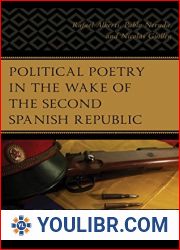
 49
49  2 TON
2 TON

